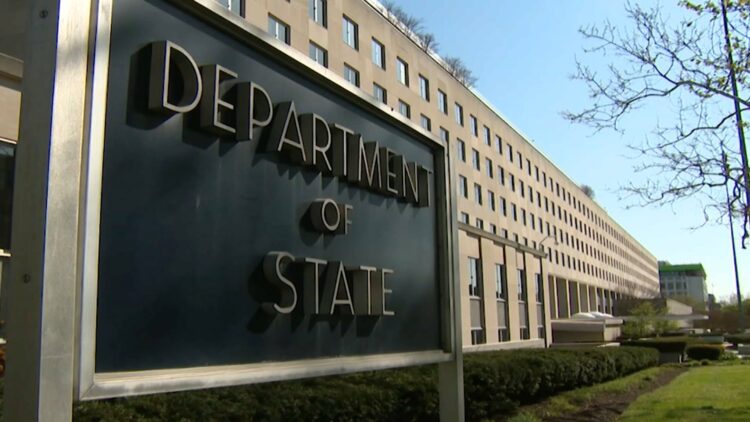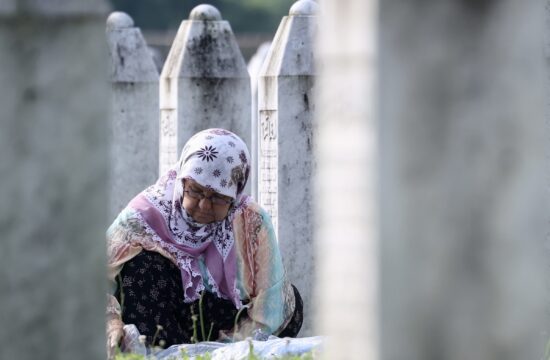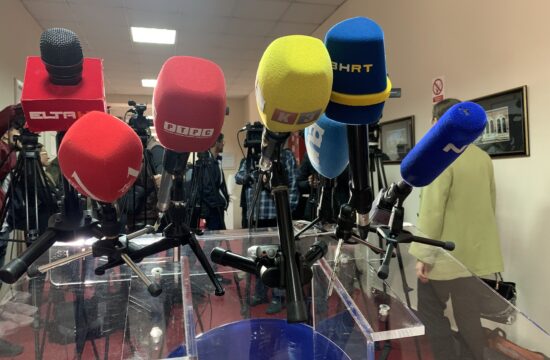
US Department of State published their annual human rights report for Bosnia and Herzegovina in which they noted the Republika Srpska (RS) entity’s continued actions to undermine the country, increase interethnic tensions and limit the freedoms of assembly and expression. They recalled the adoption of the law criminalizing defamation in the RS and the continued denial of the Srebrenica genocide.
“Escalating verbal and legal attacks by Republika Srpska President Milorad Dodik undermined the Federation [entity]’s constitutional order, and divisive and inflammatory rhetoric from Republika Srpska leaders contributed to increased political and ethnic tensions throughout the country,” the report said.
The State Department recalled that on April 28, the FBiH Government was formed after four years of institutional blockage.
When it comes to various other human rights abuse reports, the report noted that the BiH authorities “did not take credible steps to identify and punish officials who may have committed human rights abuses.”
The document, which is divided into seven chapters related to respect for basic human rights in various segments of society, includes credible reports on serious problems with the independence of the judiciary, restrictions on freedom of expression and freedom of the media, including violence and threats of violence against journalists, as well as significant interference with the freedom of peaceful assembly and association, serious and unreasonable restrictions on the political participation of minority candidates, corruption in the government, etc.
The report noted that instances of historical revisionism; genocide denial; and the glorification of individuals convicted of genocide, crimes against humanity, and war crimes continued.
“The BiH Prosecutor’s Office filed no indictments during the year through October for genocide denial or war criminal glorification under the 2021 amendments to the BiH Criminal Code. The chief prosecutor stated the office reached 30 decisions not to initiate investigations based on the complaints received, all of which came from citizens and nongovernmental organizations.”
Political pressure on judiciary
Despite the country’s constitution providing for the right to a fair hearing in civil and criminal matters and the Federation (FBiH) and Republika Srpska (RS) constitutions providing for an independent judiciary, the report notes that political parties and organized crime figures sometimes influenced the judiciary in politically sensitive cases, especially those related to corruption. These were present, especially in Constitutional Court decisions.
Speaking about the freedom of expression, the State department said that on August 26, amendments to the RS Criminal Code recriminalizing defamation went into effect.
“The amendments criminalized defamation, which was defined in vague terms, as well as the unauthorized publication of documents and images. Conviction of both was punishable by fines; the latter also carried prison sentences.”
RS officials continued to glorify war criminals with impunity, the report states.
On July 25, the country’s Srebrenica Memorial Center issued its 2023 Srebrenica Genocide Denial Report based on monitoring and analysis of the instances of genocide denial. The report recorded 90 cases of denial in the period from May 2022 to May 2023, a significant decrease from the previous year (693 cases). The report found the number of cases of glorifying war crimes also decreased, but its authors cautioned that even so there were concerning political trends of genocide denial and glorification of war criminals.
The Center named RS President Milorad Dodik “the biggest denier of the genocide,” with 11 recorded incidents.
Biased reporting
Public broadcasters, including BHRT and RTV FBiH, continued to operate without stable and sustainable income that would help enable an independent editorial policy, the report said, adding that broadcasters remained exposed to political influence.
“RTV FBiH continued to demonstrate a selective and biased approach to news coverage. The RS government continued to exert direct control over RTRS, which openly engaged in propaganda, amplifying the positions and narratives of the ruling coalition. Failure to implement the state-level Law on Public Broadcasting and to collect subscription fees kept state-level public broadcaster BHRT on the brink of bankruptcy, forcing it to shrink operations. The law enabled public broadcasters in the RS and FBiH to collect subscription fees, but they failed to do so. Authorities failed to establish a public broadcasting service corporation to oversee the operations of all three public broadcasters in the country as envisioned by the law.”
According to the State Department, multiple political parties and government institutions attempted to influence editorial policies and media content through legal and financial measures, as well as through political pressure. As a result, they said, some media outlets practised self-censorship.
The report also touched upon the election regularity stating that state elections were widely reported to be unfair and not free of abuses and irregularities.
“In May the OSCE’s Office for Democratic Institutions and Human Rights (ODIHR) presented its final report on the October 2022 general elections to authorities. ODIHR’s report stated the elections were well organized and competitive, but it also recognized prior failed reform efforts, widespread mistrust in public institutions, and ethnically divisive rhetoric hurt the election environment. ODIHR further reported fundamental freedoms were respected during the election campaign, but the lack of public debate, the use of divisive rhetoric, and the limited and biased media coverage reduced voters’ opportunity to make informed choices.”
You can read the full report by clicking on this link.





Kakvo je tvoje mišljenje o ovome?
Budi prvi koji će ostaviti komentar!